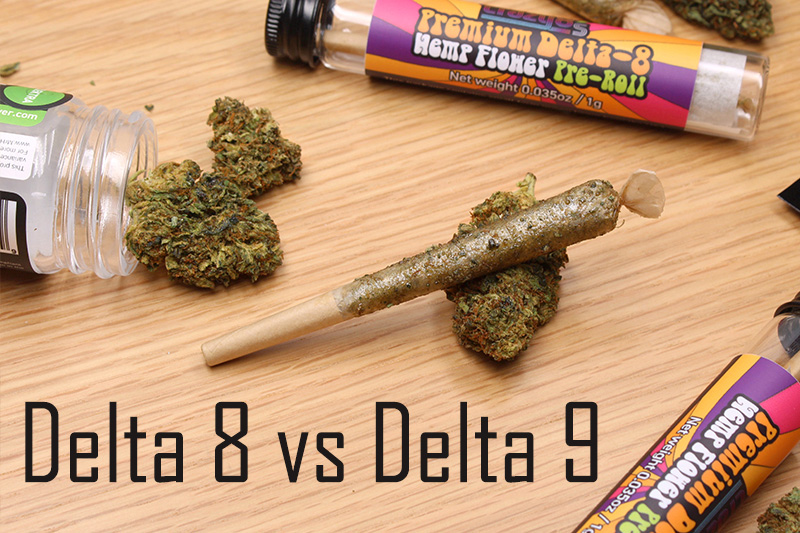How does Delta 8-THC affect the brain differently from Delta 9-THC?
Delta-8-THC is a cannabinoid that occurs naturally in cannabis plants, albeit in lower concentrations compared to Delta-9-THC. It shares a similar chemical structure with Delta-9-THC, differing only in the placement of a double bond in the molecular chain. While both compounds belong to the same family, they exhibit distinct differences in their impact on brain function and the psychoactive effects of vegan delta 8 products.
Delta-9-THC
Delta-9-THC is the primary psychoactive compound found in cannabis and vegan delta 8 products is responsible for the “high” commonly associated with marijuana use. Its chemical structure is nearly identical to that of Delta-8-THC, with the double bond located in a different position.
Binding Affinity to Cannabinoid Receptors
Both Delta-8-THC and Delta-9-THC interact with the body’s endocannabinoid system by binding to cannabinoid receptors in the brain and nervous system. However, they exhibit differences in their binding affinity to these receptors.
Psychoactive Effects
Delta-8-THC
Delta-8-THC is known to produce milder psychoactive effects compared to Delta-9-THC. Users often report feeling a more subtle high that is accompanied by increased focus and mental clarity, with fewer feelings of anxiety or paranoia.
Delta-9-THC
Delta-9-THC, on the other hand, is associated with more intense psychoactive effects. Users may experience heightened euphoria, altered perception of time and space, and increased appetite, commonly referred to as the “munchies.”
Neurological Impact
Delta-8-THC
Research suggests that Delta-8-THC may have neuroprotective properties, potentially offering benefits for conditions such as neurodegenerative diseases and neuropathic pain. Its effects on cognitive function and memory are less pronounced compared to Delta-9-THC.
Delta-9-THC
Delta-9-THC has been linked to impairments in short-term memory, cognitive function, and motor coordination, particularly when consumed in high doses or over prolonged periods.
Therapeutic Potential
Delta-8-THC is gaining attention for its therapeutic potential, with ongoing research exploring its efficacy in managing various medical conditions. Its milder psychoactive effects and potential neuroprotective properties make it an appealing option for medical use.
Legal Status and Regulation
The legal status of Delta-8-THC varies depending on regional regulations. While it is often derived from hemp, which is legal under federal law in the United States, some states have implemented restrictions on its sale and consumption. Delta-9-THC, on the other hand, remains classified as a Schedule I controlled substance at the federal level.
Conclusion
In conclusion, Delta-8-THC and Delta-9-THC exhibit distinct differences in their effects on the brain and body. While Delta-8-THC offers milder psychoactive effects and potential therapeutic benefits, Delta-9-THC is associated with stronger euphoria but may also pose greater risks to cognitive function and mental health.

